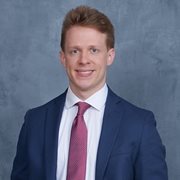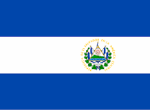Hanson Cowan

Hanson is a fourth-year medical student at the University of Tennessee Health Science Center in Memphis. He attended the University of South Carolina, where he majored in Biochemistry and Molecular Biology and minored in Spanish. Through the UofSC Arnold School of Public Health and UofSC Honors College, he developed an interest in global health and infectious diseases, and had the opportunity to volunteer with Timmy Global Health in Ecuador. With the support of Rotary International, he took Master's of Epidemiology classes at the Universidad de Antioquia in MedellÃn, Colombia while focusing on investigations into local Chagas disease transmission. His past research projects include vertical transmission of Dengue virus, Chagas disease, Zika virus and toxoplasmosis in El Salvador. He hopes to matriculate into an emergency medicine program with a global health track. In his free time, he enjoys backpacking, rock climbing and spending time with his siblings.

Characterization of placental pathophysiologic changes and Maternal-Fetal Outcomes associated with peripartum Treponema pallidum infection
National Women's Hospital
El Salvador
What does the Kean Fellowship mean to you?
It is an honor and a privilege to receive the Kean Fellowship, which will allow me to further my understanding of tropical medicine and provide me with invaluable experience conducting field work and working with global health partners from various perspectives on how to address tropical disease in their region.
What do you anticipate learning?
The Kean Fellowship will allow me to spend time in El Salvador helping to develop Dengue virus screening to better triage patients to receive the clinical care they need. I hope to learn more about implementing diagnostic tools such as point of care ultrasound and molecular assays to better manage tropical diseases in low-resource settings.
What interests you about tropical medicine and what problems are you interested in solving?
Tropical medicine challenges me to be curious not just about tropical diseases, but also people, culture, societies and, ultimately, the inequities highlighted by the burden of tropical diseases. Dealing with these challenges necessitates creativity and meaningful collaboration with patients and other members of the interdisciplinary team to create sustainable solutions to address these inequities. I hope to combine what I learn from this fellowship with my previous experiences with public health in my career in EM in order to think broadly and practically about systems and diagnostic tools appropriate for different clinical and geographic settings.